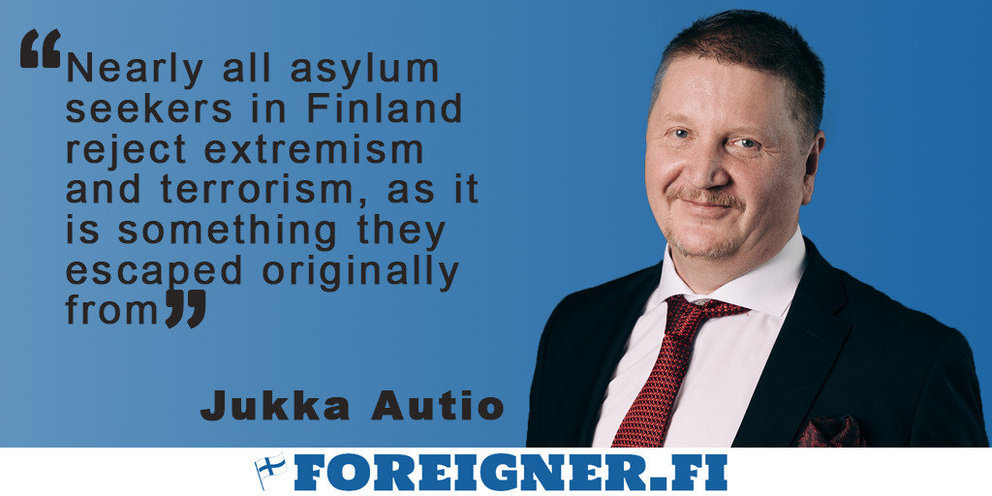As a professional in the field of immigration law and after dealing for years with many cases of people coming to Finland in search of asylum, I think I have earned the right to explain some dysfunctions that I have detected in the asylum process.
These problems affect, above all, the way the authorities conduct the resolution of the cases. And usually lead to misunderstandings that increase the situation of helplessness, frustration and despair of the persons of this vulnerable group.
The first fact I want to call attention on is that, according to the UN Guidelines for International Protection, to understand the situation of each applicant it is very important that the decision makers have good and updated information about the applicant’s country of origin.
However, in Finland the procedure establishes that during the interviews asylum seekers are only asked about their particular circumstances, hardly ever about the situation in their countries. This is because the Finnish Immigration Service (Migri) usually claims to have already all the relevant information.
The reality is that often the country information used by Migri has proven to be much more general, outdated and even immigration-politically oriented than the respective of other EU countries. Therefore, I think the information related to situations of armed conflict and violence should be used with appropriate caution.
It is explained nowhere how Migri decides the general country information valid or if locals are listened at all when it is collected. The outcome is a massive number of misunderstandings, generalizations and stereotyping of applications throughout a process in which the vulnerability of the applicant is rarely assessed and investigated.
There is no common country-information within EU nor any common rules of how to consider the need of an applicant for asylum (or residence permit), even though from the point of view of the applicant EU is one geographical area for asylum or residency, which leads in some cases to a kind of forum-shopping. For example, the same facts to the same case have lead to contradictory decisions of asylum -in one of my cases it was denied in Finland but granted in Germany. There is evidently some room to develop rules and practices in the EU level also.
There are also incidents related to the lack of understanding between the applicants and their interpreters. For example, I know the case of one application rejected by Migri by arguing that as the applicant´s father was a cleaner of a mosque there was no grounds for the applicant to fear persecution. The reality was though very different: the applicant´s father was an imam of the mosque who was also publicly executed, and that was the reason for the applicant to escape his country and search for asylum in Europe. Yes, it was a misunderstanding, but the kind that can ruin someone’s life.
Burden of the proof
The fact is that while the burden of the proof of an asylum application should lie on the person submitting the claim, in Finland the obligation to gather and analyse all relevant facts and supporting evidence is shared between the applicant and the decision maker.
This division of the burden of the proof is not explained properly to the asylum seekers at the interviews. And there are numerous situations in which applicants claims are rejected because the information collected by the public servants during the process is outdated or defective.
Those problems are worsened by the fact that applicants do not usually have legal representation or legal help during the interviews. In many cases we talk about poorly educated people who are not in a position to recognise and explain the factors that would profile them as eligible for international protection.
There are also other problems arising from the duration of the process. While it might take unto two or more years, the time to appeal has been reduced to three weeks for the Administrative Court and to two weeks for the High Supreme Court. And the shorter the time is, the more difficult it is to react. Especially for people that lack resources and usually are in shock after receiving a negative decision.
Prejudices
Some people get carried away by stereotypes and prejudices when it comes to addressing the problems that affect refugees. However, a legal debate is also needed on how to conduct the process and solve its dysfunctions, because we are talking about Justice and Human Rights.
There should be also a constructive and open discussion of how the asylum process should be enhanced, to avoid any negative confrontation between Finns and asylum seekers. If the process is fair, the outcome –even if negative- is more easily acceptable.
Finland has lived many years locked in itself, immigration is a relatively recent phenomenon and therefore it is understandable that some Finns feel afraid of this new phenomenon. But once again, it is important to banish preconceptions and see that behind every asylum seeker there is a person who just wants to live in peace like us.
The fact remains that nearly all asylum seekers in Finland reject extremism and terrorism, as it is something they escaped originally from. And even if a bad apple is found in a basket, this doesn´t mean that all are rotten.
*Jukka Autio is a Finnish lawyer expert in immigration law from Autio Associates







